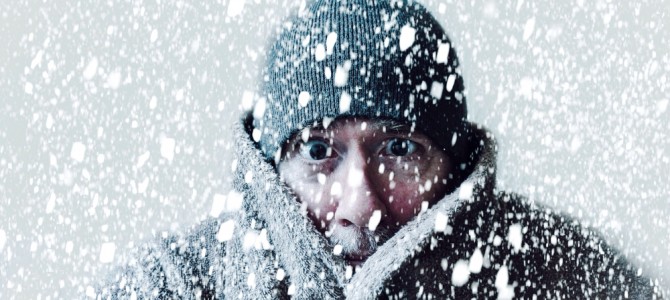I’d wake up before work feeling like I’d won a golden ticket…to Willy Wonka’s frozen hell. To make some cash for college during the summer, I worked as an oompa loompa in the industrial freezer of an ice-cream factory. It was the best-worst experience of my life.
Most kids don’t get the same chance. Our parents could bus tables, pump gas, and bag groceries. But my generation has fallen on hard times. We’re losing an opportunity to learn the virtue of hard work.
The New York Times reports that less than a third of teenagers landed a summer job last year—another million more looked for employment but just couldn’t find it. Today teen unemployment has plummeted to levels not seen since the Carter administration. This isn’t just a career catastrophe. It’s a character crisis.
Not only does that first job prepare young people for their career, more importantly, it shapes their character. That was my experience in the frozen ice-cream-factory inferno. At the plant, every week was 40 hours in negative 40 degrees. Dressed like Eskimos piloting motorized pallet jacks inside an arctic warehouse the size of three city blocks, my coworkers and I would gather wholesale ice-cream orders for big-box stores around the country.
We were the ones getting Chunky Monkey and Rocky Road to the chubby kids on the other side of the mountain. Like drug cartel distributors, but for delicious dairy deserts, we enabled the childhood obesity of entire school districts daily. And it wasn’t easy.
Within seconds of entering “the box,” your face froze and your race with the clock began. OSHA requires workers take a 20-minute mandatory warm up break every 75 minutes. Stay a bit longer, and you invite frostbite. Stay a lot longer, and you’re just asking for irreversible tissue damage.
Inside that icy window, workers zip around listening to a computer woman bark into their earpiece the location, quantity, and description of items. “Aisle 3, Bin 37—Mint Chocolate Chip—Pick 20!” then “Aisle 5, Bin 12—Pralines ‘N Cream—Pick 3!”
It goes on and on like this, until your hands and feet turn to blocks of ice or you finish your order. But it wasn’t just a subzero marathon of endurance. It was also a sprint. Each day a computer algorithm calculated the number of orders each picker had to fill based on the day’s case volume. If you moved enough pallets, you made rate and kept your job; if you didn’t, you got cut. It’s like a baseball slugging percentage, but just measured in cases of drumsticks and fudge bars instead of singles and doubles.
Stacking boxes like Jenga blocks on a pallet, the job was part dockworker, part NASCAR driver, and completely miserable. I wanted to quit. Years in the freezer must have frozen the full-timers’ blood, though. While new guys shivered, they refused to acknowledge the cold. Dudes looked like they just returned from a voyage with Shackleton: they sported impressive beards and posted perfect rate numbers. For less than double minimum wage, these guys were industrial All Stars.
Morning startup meetings seemed like press conferences when management announced which of these icemen knocked loose the highest case count the day before. Locked in a battle for first place on first shift, Stone, Coleman, and Kern would roll in all sunglasses and Advil. It was mad real.
The only difference between these Keebler elves and professional athletes was that most had potbellies and only a few had felony records. And to them, I was just another candy-assed college kid about to wash out like the rest of the temps before me. Except I didn’t want to be that guy.
So I made picking ice cream my excellence. I took mental snapshots of different routes to different products, calculating the fewest steps between bins so I could go as quickly as possible. I learned how to parallel double park that moto-pallet-jack sideways. And I bought every pair of wool socks and set of long underwear in the tri-state area. Most importantly, I came in to work early and stayed late and I made rate. In short, I froze my ass to the top.
There’s nothing lovely in that work. There’s nothing inherently transcendent about becoming an accessory to juvenile diabetes. None of the full timers dreamt of working in an industrial freezer as a kid. Most came to the job as a last resort. These guys froze so their families could thrive. More than one told me they were pulling extra shifts at other jobs also, so that his wife could stay home or his kids could go to school like I was.
Earning their respect by making rate, joining that group by working hard: that was beautiful. They taught me what the virtue of hard work, and I’m better for it.
In Manhattan, The New York Times ponders whether teen unemployment has taken a hit for lack of “government support” of young worker programs. But my generation has had about as much “support” as we can handle. Minimum wage laws, expanded overtime regulation, and outdated child labor laws have set us back.
Washington ought to make it easier for us to get a job by taking a back seat. Their good intentions have robbed us of our American birthright. Our parents worked hard to get ahead. Let us do the same.
My tour of the Wonka factory ended right as classes began. The icy experience thawed any ill-conceived cynicism of youth. If those guys could excel and find happiness where they were, so could I. That’s the attitude I’ve taken with me to every job since and I’m extremely grateful.









